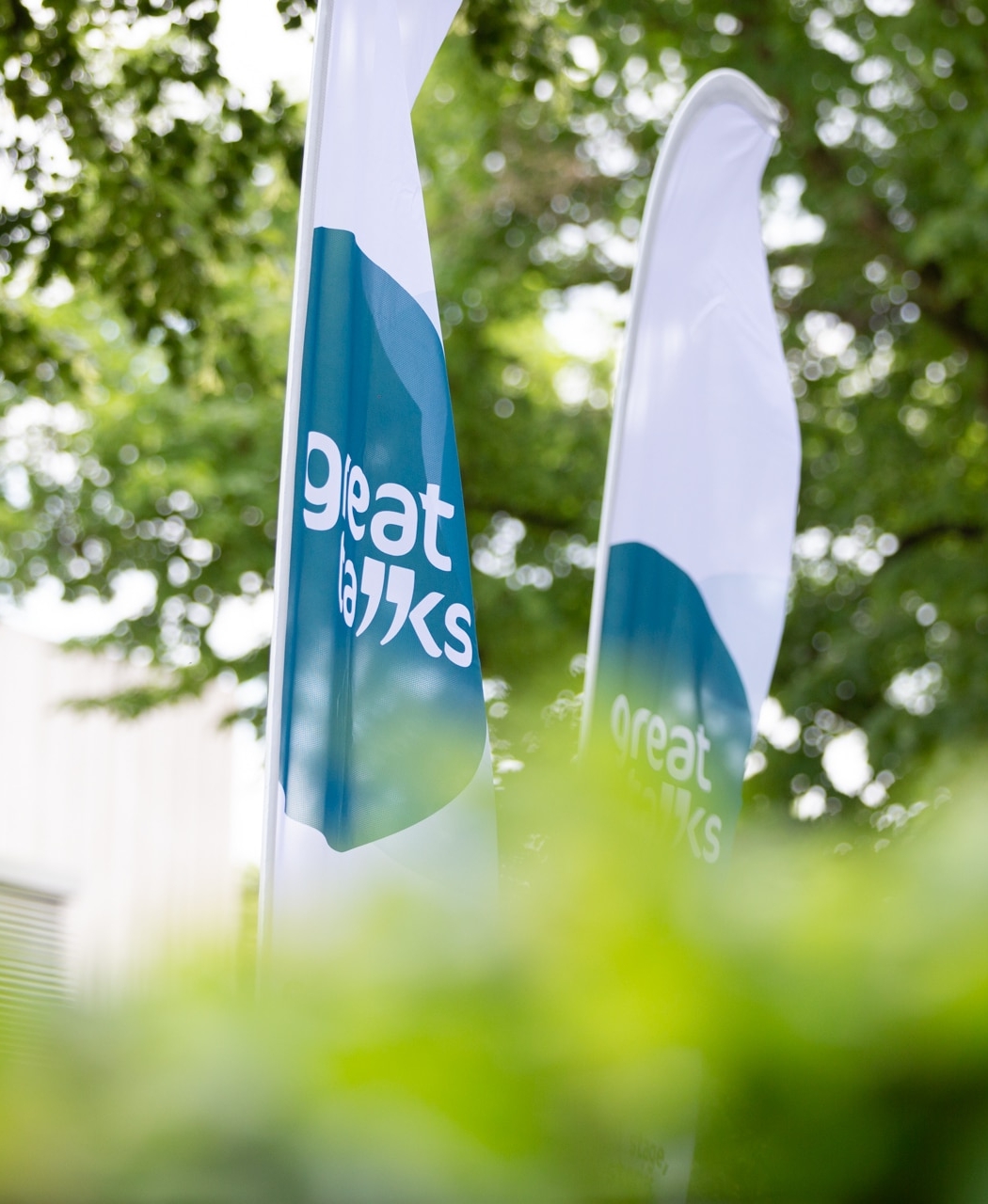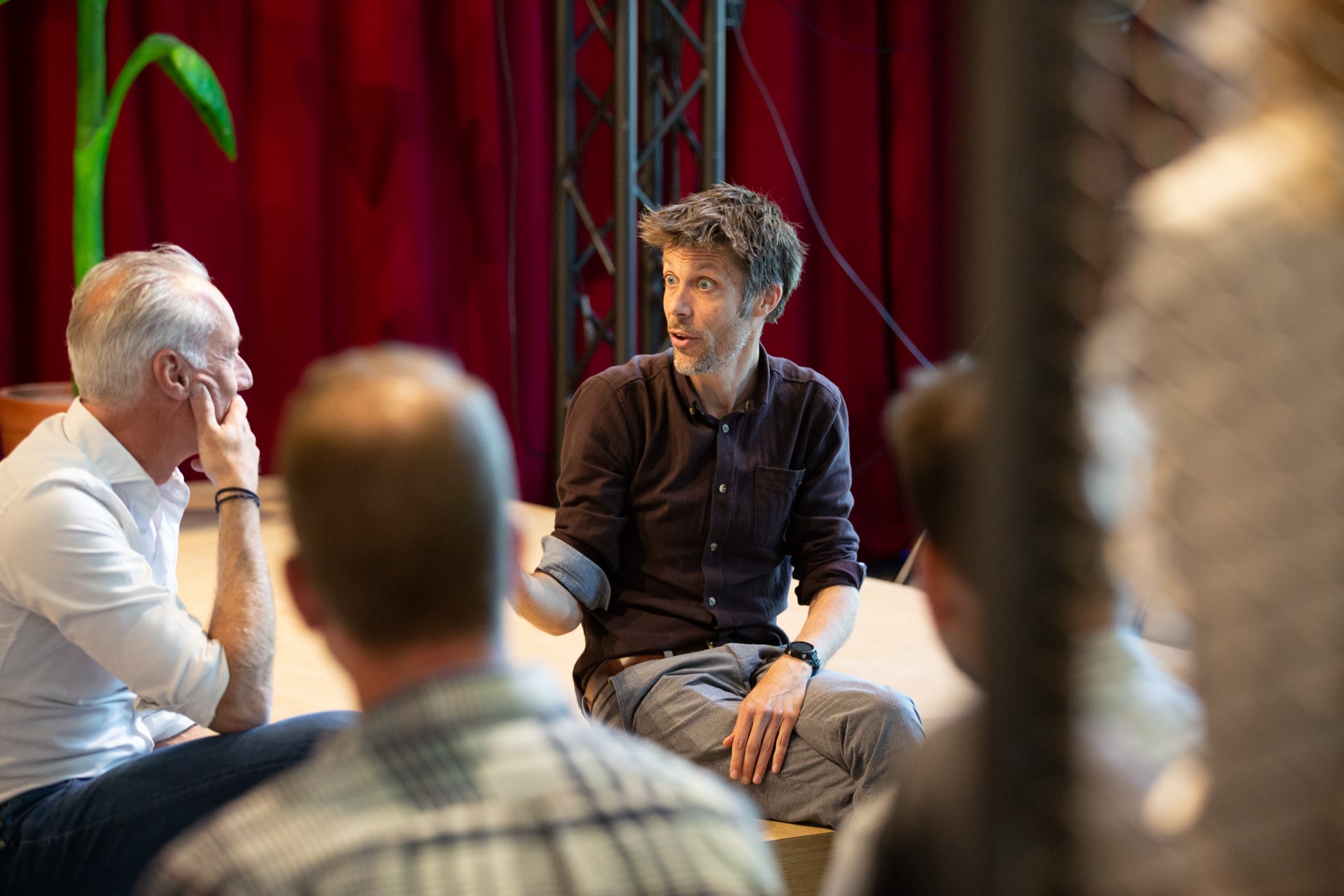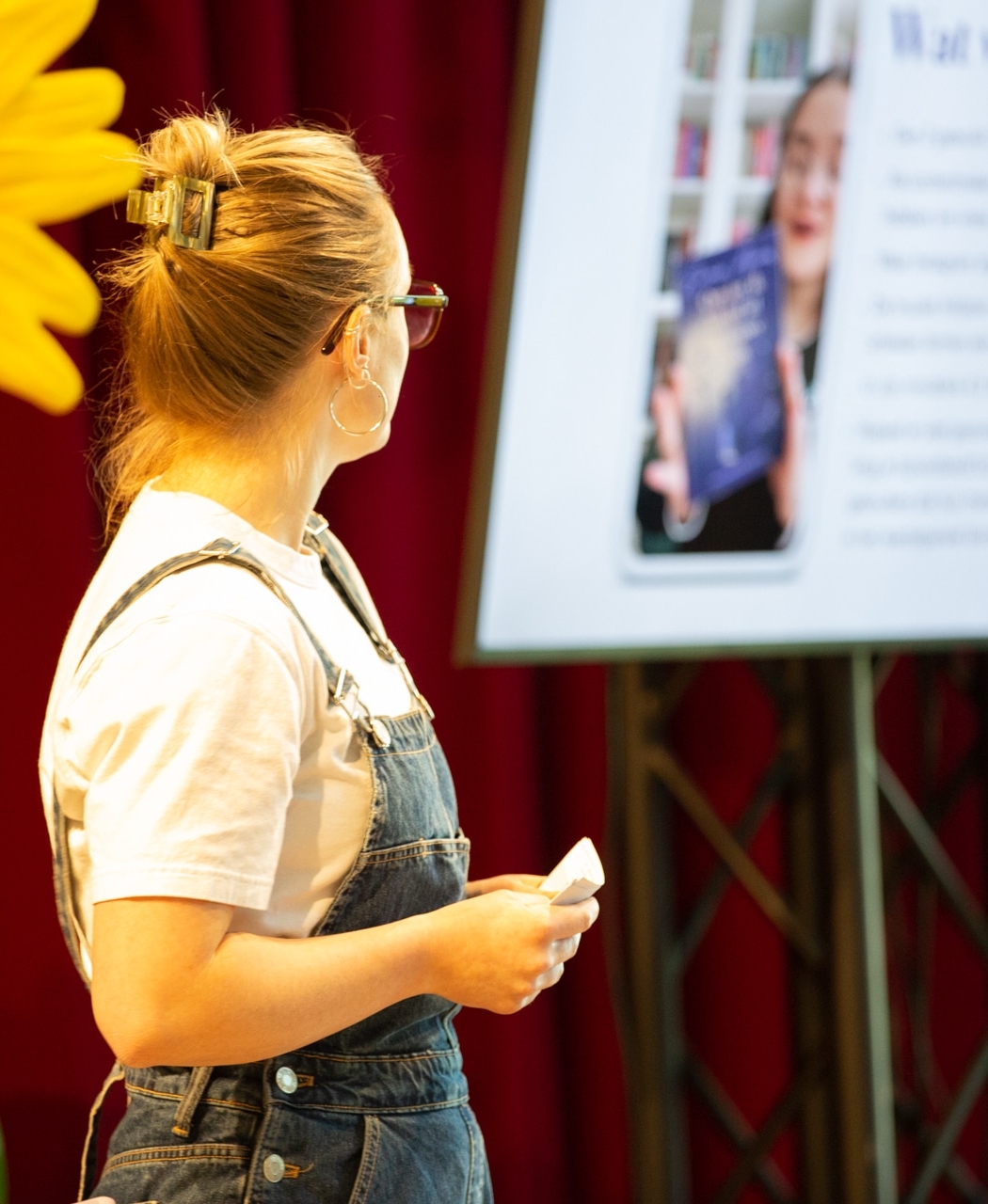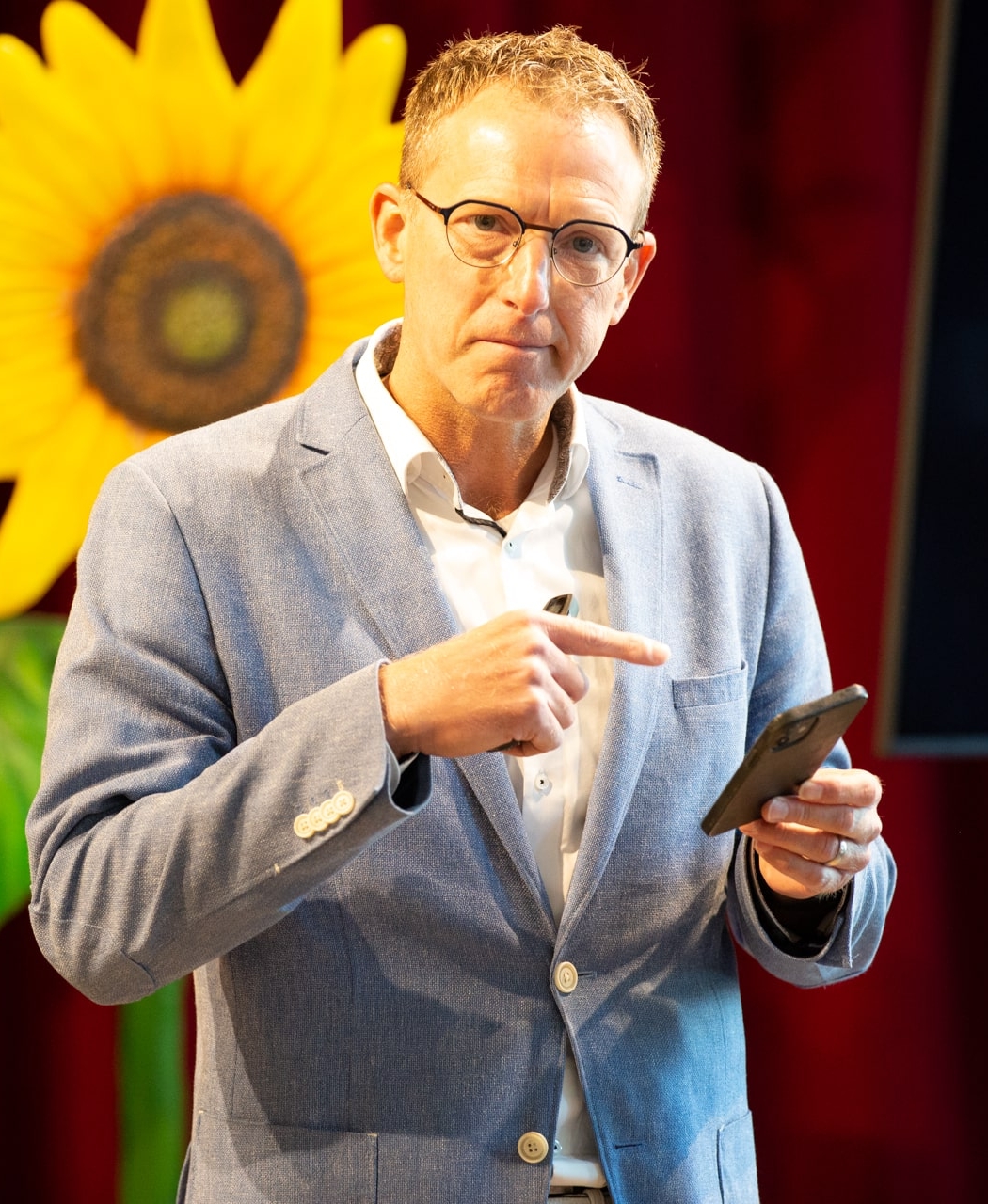Great Talks 3: Paying Attention to Attention

The world is spinning faster than ever. Notifications scream for it. Work and study get buried beneath it. Every story thinks it deserves it. But attention has become a rare commodity. So what does attention even mean in a world full of distractions? And how do you earn (and keep) it in an age of endless swiping and scrolling?
We need to talk.
Connecting with others has become a challenge. And yet, it’s what people and brands crave most. Plenty of reason to reignite the fire behind Great Talks.
At the third edition of Great Talks, we joined inspiring speakers to reflect on a topic that keeps asking more of itself: Attention.
So… may we have yours for just a moment?
We look with our brain
Stefan van der Stigchel, Professor of Cognitive Psychology at Utrecht University, kicked off the third edition of Great Talks with a scientific lens on the theme. Because what is attention? Stefan showed us that attention isn’t something you simply have or don’t have. It’s something you can guide, train, and shape. As long as you understand how it works.
In his book “Beter Leren Kijken” (a gr8 reading tip!), he takes things even further: by showing how we can become more conscious observers, and how that shapes our view of the world.
We like to think we see the world objectively. But the truth is we don’t. What we perceive is always coloured. By our interests, expectations, emotions, context… and most of all, by where we choose to focus our attention.
Powerful insights for our field. Because if anything, this shows just how important it is to truly understand your audience.
Attention is the mental spotlight that decides which information from the world around us gets processed by the brain.
Stefan van der Stigchel


TikTok: what this platform teaches us about attention
The second speaker was none other than our very own Tess, who took the audience on a deep-dive into the world of TikTok. To older generations, it may feel like an enigma. But for Gen Z, it’s the go-to platform for entertainment, inspiration, and even search.
When we talk about attention, we simply can’t ignore TikTok. It’s become the ultimate symbol of how attention works today: fragmented, fleeting, and overwhelming in volume.
Attention isn’t gone, it’s just changed. And for those who know how to play it smart, TikTok is pure gold.
Together, we scrolled through trend-driven posts, dance videos, book tips and inspiring content. TikTok creators know exactly how to grab attention. But what can brands actually do with that knowledge? For one, the HEMA examples brought laughter into the audience.

Attention through the ages
Tony Bosma, trendwatcher and founder of Extend Limits, closed our small stage this edition. What kind of era are we really living in? Is our collective attention span truly in crisis?
To answer that, Tony took us on a time-travel tour through cultural shifts, news headlines, and striking facts. And guess what? Our current fear of “losing attention” is older than we think. When radio was invented, people worried. Then came television. The internet. And each time, the same question:
What will happen to our attention with all this new tech?
Maybe what we need now is an invention that protects our attention, instead of draining it. Tony pointed to AI agents as one such possibility. But he also raised a sharp question: will the big tech players really invest in something that takes away their modern-day gold?
Because in the age of social media, attention isn’t just scarce.
It’s big business.
gr8 talking to you!
The third edition of Great Talks delivered once again: an afternoon full of inspiration, sharp insights, and an engaged audience. You could even say… attentive.
Now it’s time to use our attention with intention. To create space for what really matters. For real connection.
Because in a world full of noise, genuine attention might just be the greatest gift you can give.
